READY TO GET STARTED?
REQUEST A FREE ESTIMATE
Fill out the form below or call (888) 466-7849 for a free, no-obligation estimate.
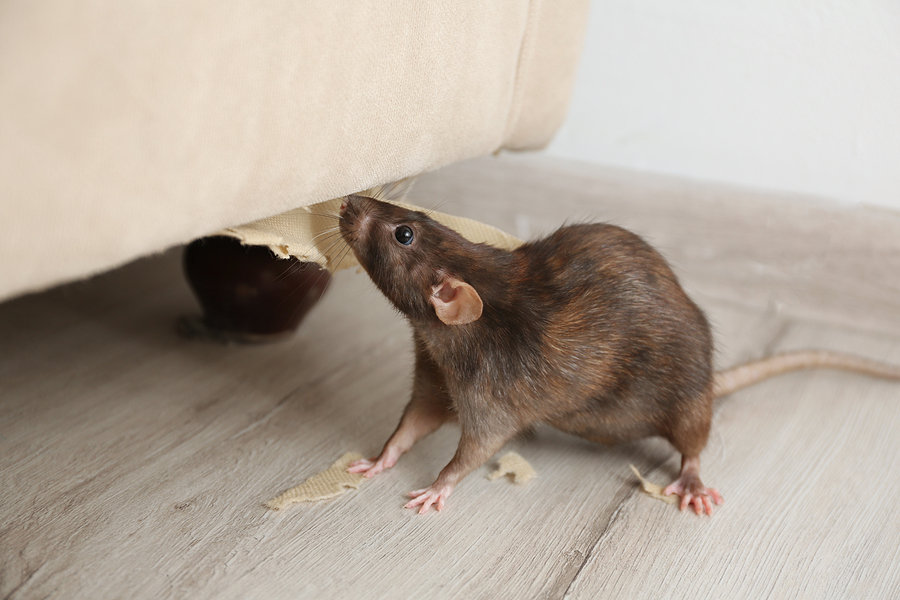
The last thing any homeowner wants to deal with is pests. A household pest is any insect or animal that is commonly found in a household structure that can cause destruction to the property or to your health. While the occasional critter can make its way inside, routine occurrences indicates the likelihood of an infestation. Fortunately there are some DIY pest control tips you can use at home to help prevent these pests from taking over. Here are a few of the most common household pests and how to prevent them.
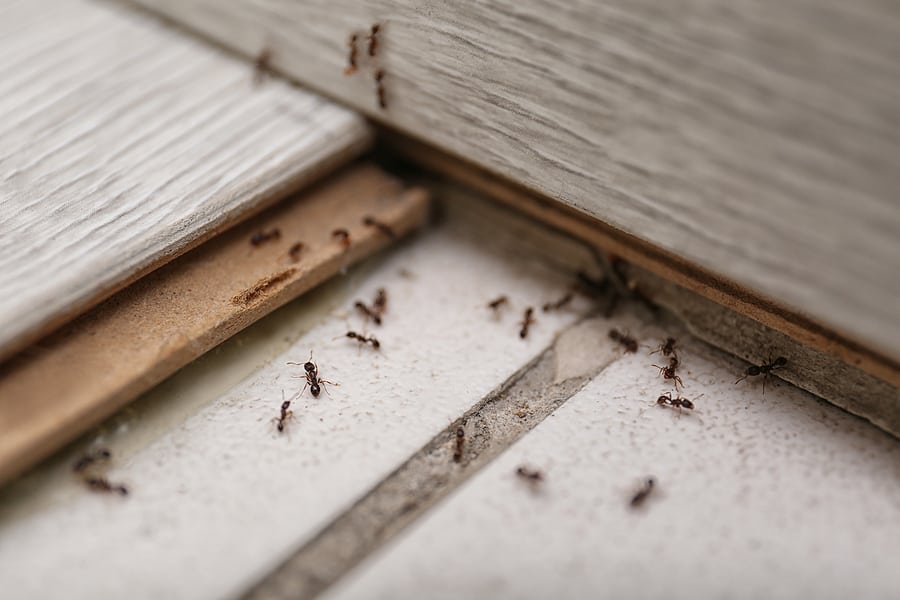
Most ants don’t cause any structural damage to your home (with the exception of carpenter ants). They are, however, the #1 nuisance pest in the United States. Ants are difficult to control because their colonies are so large. These pests typically come indoors in search of food and water and can usually be found near these sources in your home – especially in kitchens and bathrooms. Prevent ants by:

Birds are not usually considered nuisance pests but their nests can obstruct common areas of your home and their droppings can contaminate or damage other areas. Birds usually enter your home in search of food and shelter. Prevent birds by:

Cockroaches are dangerous to humans as they are known to carry serious diseases and trigger both allergies and asthma. These pests multiply quickly, making them very difficult to control. Roaches will come into homes in search of food, water, and shelter, with them often found in kitchens, bathrooms, and laundry rooms. Prevent roaches by:
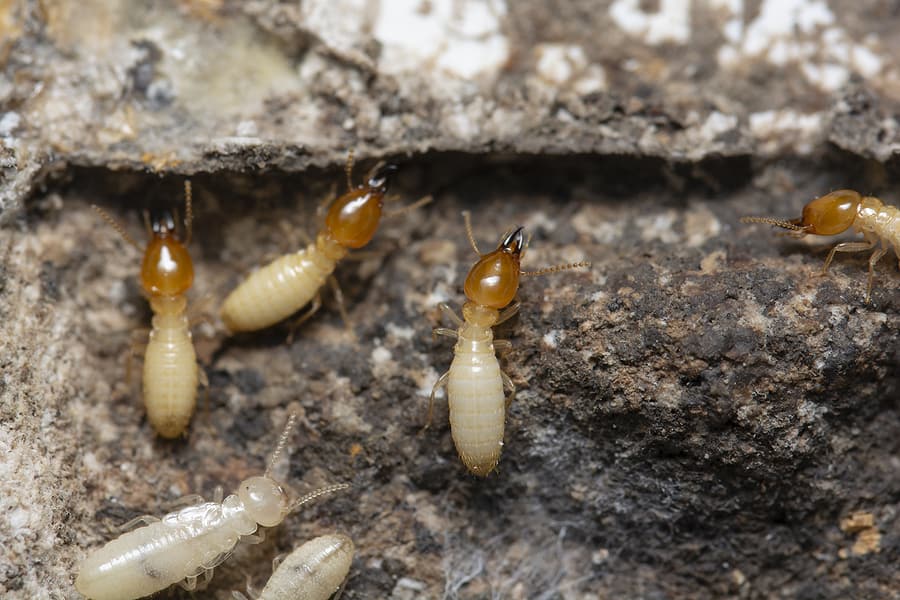
Termites are known as silent destroyers, eating wood from the inside out and going undetected for long periods of time. Common signs of termites include swarms; mud tubes; discarded wings; discolored drywall; peeling paint; wood with a hollow sound when tapped; squeaky floorboards; doors and windows that stick; damaged wood; loose tiles; and buckling floors. Prevent termites by:
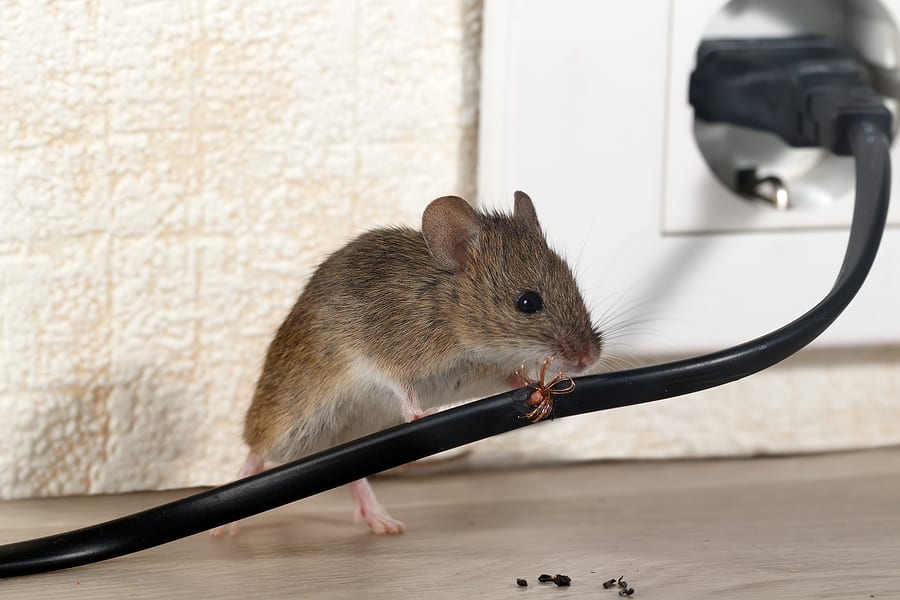
Rodents are common household pests and include rats, mice, squirrels, and raccoons. Rodents can cause significant damage to your property by chewing through electrical wires and insulation. They can also contaminate food and spread disease. Prevent rodents by:
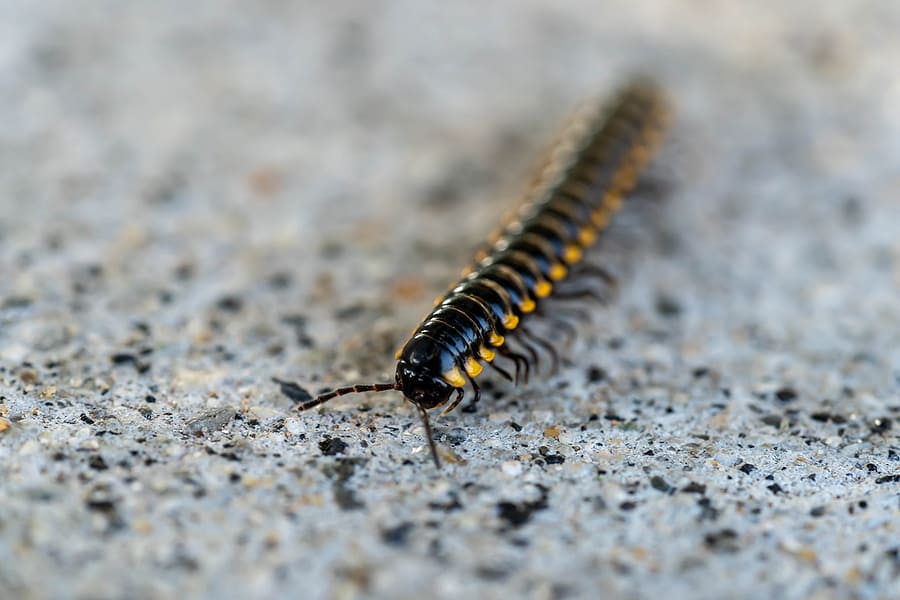
Centipedes are arthropods with 14 or more body segments and one pair of legs per segment. Millipedes are also arthropods but they have 2 pairs of legs on their body segments. Neither of these pests are considered dangerous and don’t cause damage or spread disease. They can, however, be annoying if they infest in large numbers. Both of these pests thrive in moisture-rich environments. Prevent centipedes and millipedes by:
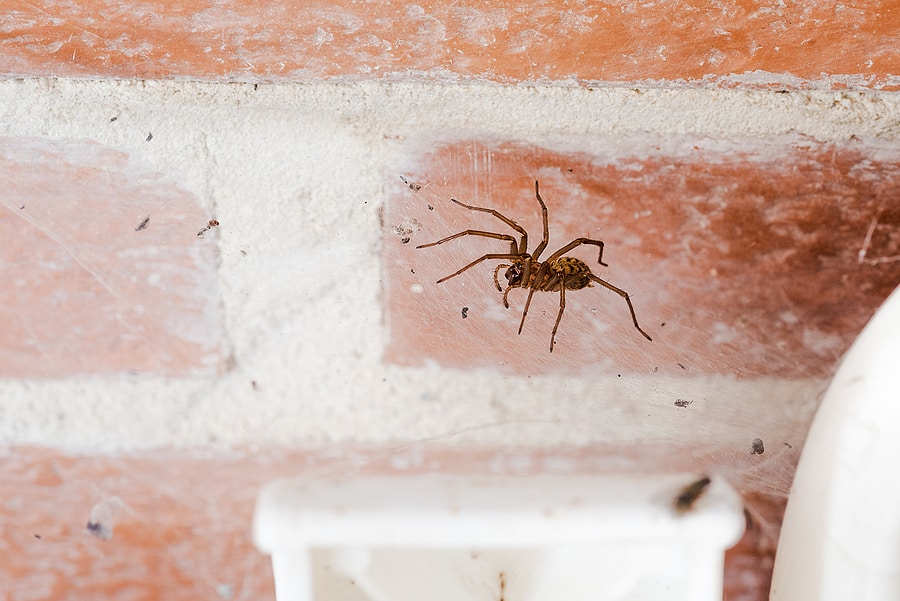
Although there are a few venomous spider species in our area, most spiders that make their way into your home are harmless (and even beneficial by eating other pests)! Prevent spiders by:
The key to household pest control is prevention. By taking these steps early, you can head off an infestation before it starts. If you have a problem with any household pests, contact your local pest control company for a free evaluation and comprehensive treatment plan.
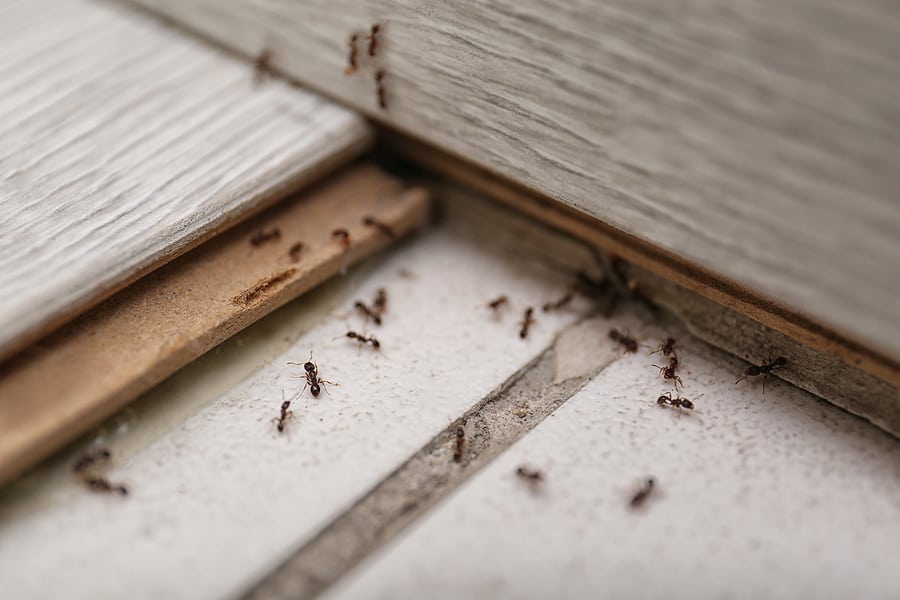
Little black ants are a common household pest usually seen in larger swarms during the warmer months of the year. These ants can be a huge nuisance, commonly infesting areas such as the bathroom and kitchen, searching for food and a place to nest. Once ants become a problem, it can be difficult to control them; but with some easy preventative measures, you’re less likely to encounter these pests!
Ants are always in search of food. Eliminating any food source that they have easy access to will be a major part of preventing them. After every meal, wipe down countertops and tables of any food crumbs or spills left behind. Don’t forget about your appliances either; ensure that your stove, microwave, and sink are also cleaned frequently. To prevent these pests from infesting your pantry, use sealed containers for any dry goods. Consider placing a bay leaf in canisters of dry food like flour to repel ants.
To survive, ants need water. Eliminating moisture throughout your home is key to ant prevention. Take some time to look around the interior and exterior of your home. If you notice any leaks, make sure you repair them immediately. Check your gutters often to make sure there are no clogs. Consider installing gutter guards to help prevent clogs. Additionally, make sure that the downspout is directing away from your foundation.
Being as little as they are, ants only need a small gap or hole to make their way inside. It’s essential to identify entry points and seal them properly to avoid infestation. Look around the interior and exterior of the home to look for these gaps. Popular places include areas where pipes and wires enter your home. Check your windows and door screens for any open holes and replace weatherstripping frequently.
Preventing ants can be difficult and feel impossible. If you’ve noticed an increase in ant activity around your home, consider contacting your local pest control provider. These professionals will complete a thorough and comprehensive treatment and control plan.
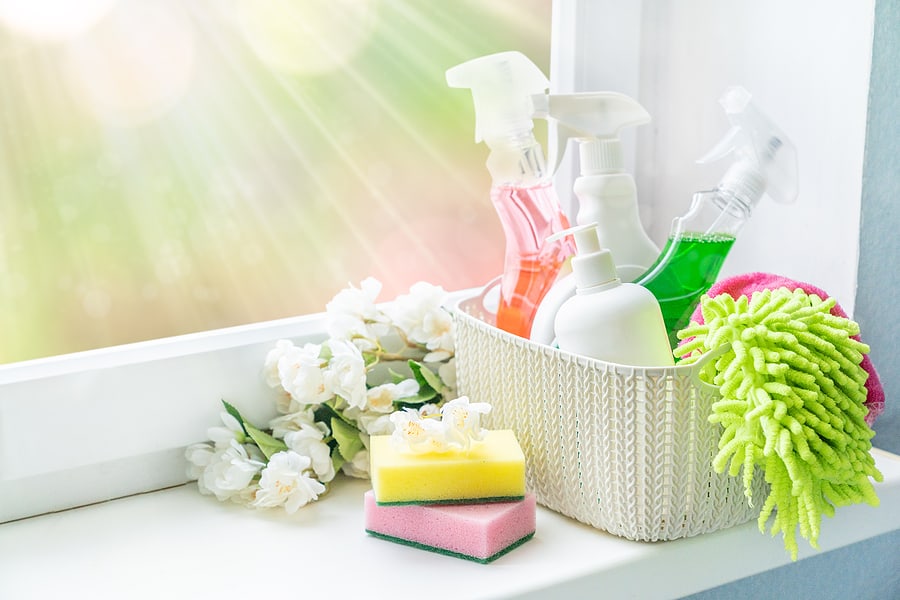
Spring is a perfect time to tackle home projects and deep clean the entire house! With warmer weather expected, it’s essential to get your home prepared and cleaned to make sure spring pests don’t infest!
For many, the kitchen is the heart and main area of the household. Family members gather, cook, and eat in this space, making the kitchen the ideal place for pests to take advantage of both food and water sources that are left behind. Pests like ants are known to infest the kitchen for these things they need to survive. Beetles and Indian meal moths are also searching for a food source, usually in pantries. To keep all these pests out, homeowners should make cleaning a priority all year long. Wipe down countertops after any spills or mess and clean up any food crumbs that might have dropped. Consider going through the kitchen pantry monthly to discard any expired items and wipe down the pantry shelves.
Keeping moisture out of your bathroom can sometimes feel impossible. Roaches and silverfish are two pests that are highly attracted to moisture and often found in the bathrooms of homes. With a little preparation and cleaning, every homeowner can eliminate moisture to keep these pests at bay. Check under the sinks and around the tub to ensure there are no leaks. Keep the bathroom decluttered by cleaning out the medicine cabinet and washing the shower curtain and liner.
Basements and crawlspaces are both dark and cool, making them the perfect place for pests to take refuge. Rodents and spiders are commonly found in these places and will often seek clutter and dark corners to hide in. Going through and eliminating cluttered items and belongings stored in the basement will help keep deter these pests. If storage is needed, avoid using cardboard boxes and use plastic bins with secure lids instead.
Keeping pests out of your home can sometimes feel impossible. If you notice more pests in your house than you can handle, consider reaching out to your local pest control company. These trained professionals can help identify the pests, provide a prevention plan, and treat areas as needed.
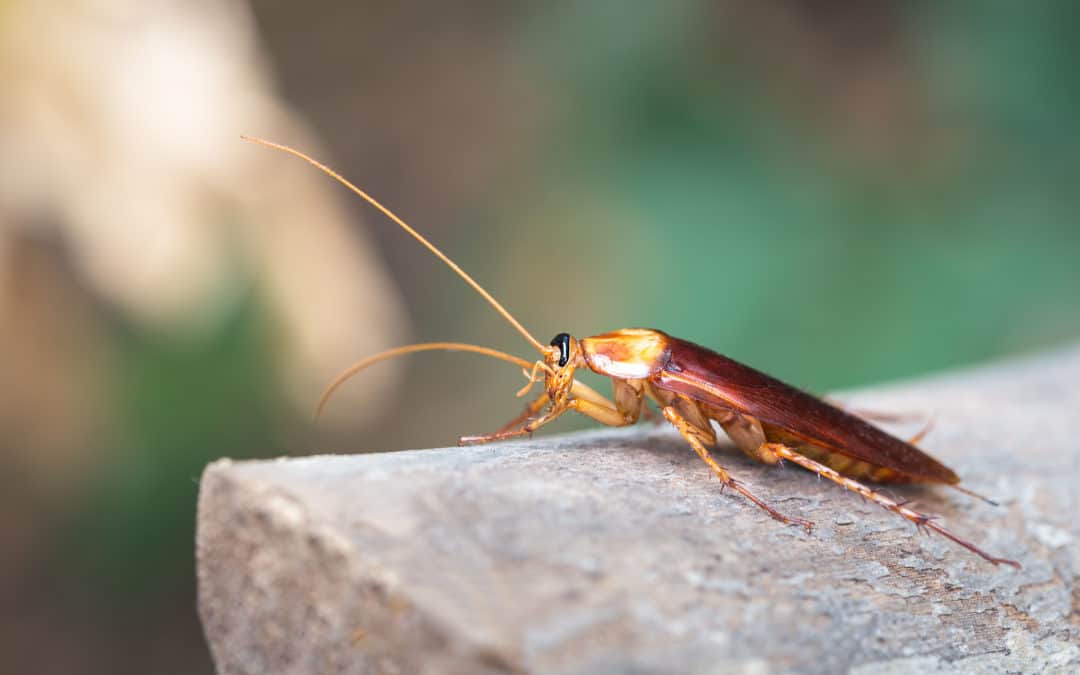
To most homeowners, cockroaches are all the same. They can sneak into homes, contaminate food, and be a nuisance to your entire household. While we tend to lump all cockroaches into one category, it’s essential to recognize that there are many different species of roaches around the world. Cockroach control methods depend on which species you are dealing with. Two popular roaches in southeastern states that get easily confused with one another are the Oriental cockroach and the American cockroach.
The oriental cockroach is a common species in the South. With a glossy body and cherry to black coloring, these roaches measure 1 to 1.25 inches in length. While they can cohabitate with American roaches, they usually prefer the outdoors rather than the indoors. Oriental roaches cannot live without water for more than two weeks, which means they are on a constant search for both a water and a food source. They often feed on decaying organic matter, starchy foods, and garbage.
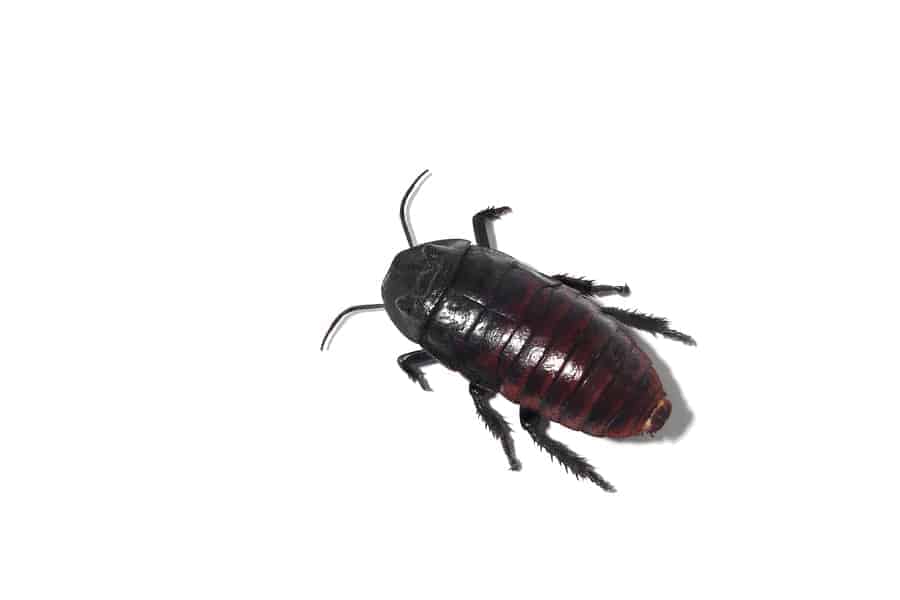
The American cockroach is quite a common species, especially in the state of Georgia. These roaches are chestnut to light brown color with a light-yellow band around the back of their head. Adults can get up to 2 inches in length and can live up to two years! Like the oriental cockroach, American roaches are in constant search of a water source and you will often find them near pipes, sewers, and basements. While they will feed on most foods, they particularly like fermenting material such as small insects, fungi, and algae. If they find themselves indoors, they will eat any crumbs or food found in appliances, kitchen cabinets, and floors.
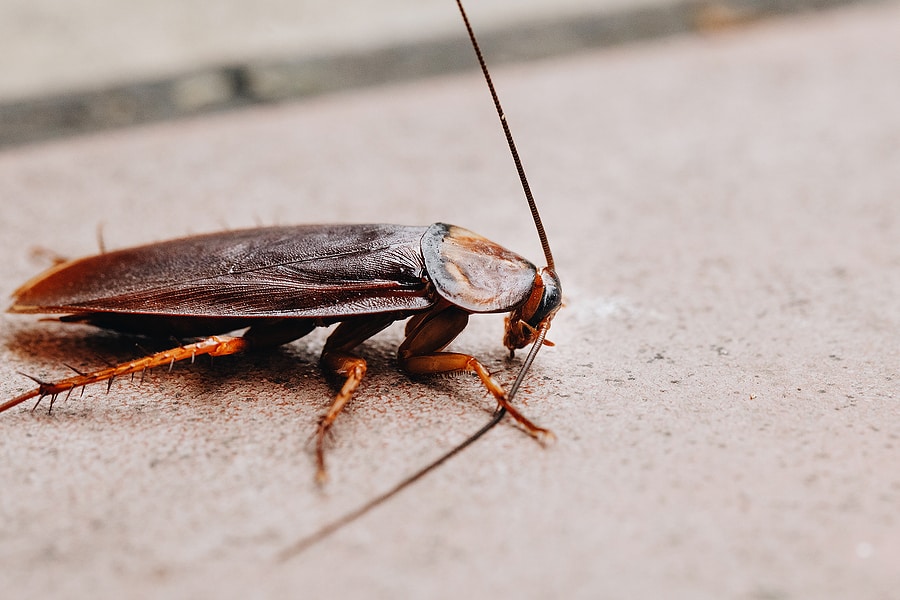
Prevention is the key to keeping these pests from entering your house. Help prevent cockroaches by using these tips:
– Thoroughly clean your home each week.
– Store all food in tightly sealed containers.
– Clean up yard debris such as leaves or fallen tree limbs.
– Don’t let shrubs, trees, or woodpiles touch your home.
– Don’t forget to clean under forgotten spaces such as under the fridge, stove, and inside cabinets.
If you’ve done all the preparation you can but are still seeing roaches, consider contacting your local pest control company where they will help identify the roach, eliminate them, and keep them from coming back.

One thing that is sure to put a damper on your holiday spirit is unwanted pests! The holiday season provides ample opportunity for household pests to make their way into your home. Spiders, rodents, ants, ticks, and other overwintering pests will commonly invade in search of food, water, and shelter.
Holiday pests will use Christmas trees, wreaths, firewood, decorations, storage boxes, luggage, and more to hitch a ride into your home. Some pests will hide in the branches and crevices of Christmas trees, wreaths, garland, and firewood. They can even lay eggs which will then hatch after you bring them inside. Mice and other pests will take refuge inside your storage boxes that hold decorations. You may find live pests, dead pests, or droppings inside these containers. You may also find that they have chewed or damaged wires inside the box.
Increased travel at the holidays increases the risk of bed bugs. These pests hitch a ride on unsuspecting travelers’ luggage, coats, purses, and more. The kitchen is often the central gathering place for holiday cooking and meals. It can also be a big source of food for unwanted pests. Crumbs, spills, leftovers, and dirty dishes all provide an easy food source for holiday pests.
Don’t let pests ruin your holiday plans. Keep them away with these 5 holiday pest control tips.
Pests can come indoors on live trees, wreaths, garland, and firewood. Carefully inspect these items outside before bringing them inside. Make sure to check for live pests, nests, and eggs. Shake them out carefully to disturb any slumbering pests and to knock off any hidden pests.
Pests will hide out in boxes used to store decorations and other holiday items. Unpack these items outside and inspect them all carefully for signs or pests including dead bugs, live bugs, droppings, gnaw marks, and other damage. Carefully check strings of lights and other wires for signs of chewing.
Holiday meals are centered around the kitchen. Clean up the kitchen after cooking. Wash dishes or load the dishwasher and don’t leave dirty dishes out overnight. Sweep up any crumbs from the floor and clean up spills immediately. Make sure to empty the trashcan frequently, especially before bedtime.
Bed bugs are common at the holidays because of the increase in travel. Whether you are going away or you have guests coming in, inspect the bedding carefully for bed bugs. Signs of bed bugs include live bugs, reddish brown spots on bed linens, and shed skins. These can be found on beds, mattresses, box springs, linens, curtains, furniture, and even baseboards. Check luggage before bringing it into the house. Wash clothes in hot water and dry on hot heat as soon as you return home.
At the end of the holidays, taking down decorations and storing them for next year becomes a priority. Store your holiday decor in plastic storage bins with sealing lids rather than cardboard boxes or bags. Don’t pile discarded trees, garlands, or cut firewood near your home as these can attract termites and rodents.
The holiday season is a time of great joy, family, and friendship. Don’t let holiday pests ruin your year. If you have a problem with any type of critter in your home, contact your local pest control company for a free inspection and comprehensive treatment plan.
Crawlspace Enclosure: The Cure For Cold Feet